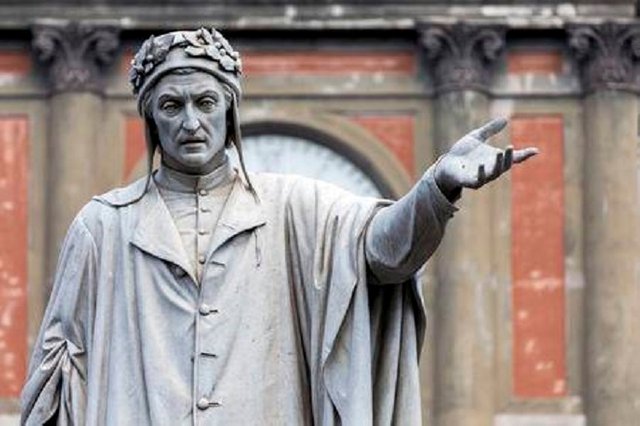Dante Alighieri and his not so famous works /part 6/
The seed of virtue swears to the individual, as in each of his four ages he gives as fruits different "perfections": obedience, gentleness, shyness and body beauty during adolescence; moderation, strength, love, politeness and honesty during the youth age; prudence, justice, generosity and courtesy through "maturity"; and what makes the soul perfect in old age is its readiness to return to God by blessing its own, already gone, earthly road. At the end of the "Feast", before the author's traditional conclusion intended for conscientious readers, Dante repeats that nobility is an individual gift, and one generation can be defined as noble alone on the basis of the "virtue" that every kinsman radiates in it.
French literary historian Henri Ovet testified that "years after the creation of the" Feast", Dante reproaches for the mistakes he made during his adult life when he was engaged in zealous research: He is accused of being away from faith and God's revelation in his quest to study human wisdom. Deprived of Beatrice's guiding angel's eyewitness who would not allow him to "deviate from the right path," the poet Dante regrets that he did not pay enough attention to the messages coming from Heaven, he went on the false path and followed false ideas. Dante admits that he lived in delusions not only in the plan of the spiritual life, but also in the daily life. He was too passionate about worldly pleasures, passionately devoted to other love affairs, other than the true love of his childhood, misled by other friends who had moved him away from his one true friend, Guido. Thus Dante's symbolism is enriched by his observations of real-life events and of people immersed in weekly reality. In fact, the poet who later created the "Divine Comedy" really draws from real life, from the weekly reality, the images and the atmosphere among which he has his intellectual and religious crises.
De vulgari eloquentia
Dante 's Treatise on "De vulgari eloquentia" is incomplete. It consists of two books in which the author puts his ideas in Latin. It tracks the evolution and achievements of the Italian language in the field of philology, literature and poetry. The author argues that none of the local dialects spoken in Italy, except in Florence, can be used in the elaboration of sublime poetry. The first authoritative analyst of the Italian Renaissance culture, Jacob Burkhart, writes that in the essay "On the Speleology" "in various forms he finds the expression repeatedly paid by so much suffering that the exile should also find a new spiritual homeland in his language, and beyond his native city education, a homeland that can not be taken away. The same researcher argues that Dante "has found a new homeland in the language and culture of Italy, but went further with the words:" My motherland is the world at all. "When he offered to return to Florence under unfavorable conditions, he replied in writing: "Can not I see the sun and stars everywhere? To meditate on the noble truths, without looking for this lack of glory or even shrouded in the eyes of the people and the city? Even the bread I will not miss. In the first book of "De vulgari eloquentia," the language of the commonwealth is presented as a language without rules that the spokesperson takes from her nurse. He, though not so cultivated as Latin and Old Greek, is natural and fit to name everything that surrounds us. At the beginning, the speech is presented as a distinguishing mark of the people and it is reminded that angels and animals do not need it. Dante challenges the Scriptures written that the first words pronounced by the human race are the words spoken by Eve of the serpent. He argues that it is more logical to assume that the first word pronounced by the mortal was a Jewish God that was directed by Adam to God-creator. According to Dante, the first language spoken by Christ was the Hebrew, and it should be considered as the first spoken word created with the first man.

i will read later because i like your part 5
part 6 is nice great article
You got a 13.44% upvote from @postpromoter courtesy of @godflesh!
Want to promote your posts too? Check out the Steem Bot Tracker website for more info. If you would like to support the development of @postpromoter and the bot tracker please vote for @yabapmatt for witness!
You have recieved a free upvote from minnowpond, Send 0.1 -> 10 SBD with your post url as the memo to recieve an upvote from up to 100 accounts!
There are lot of talents that hasnt been appreciated by many.